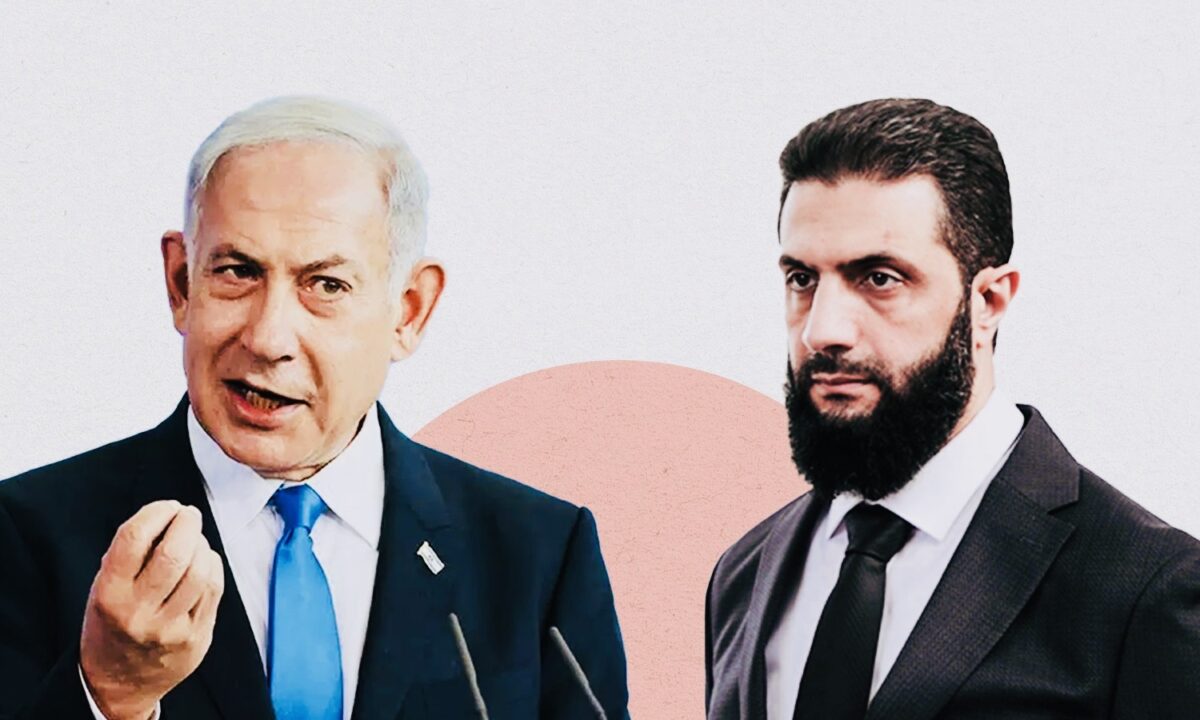Israel and Turkey have taken the first concrete step to reduce tensions over their respective interests in Syria.
Yesterday, Israeli and Turkish delegations conferred in Azerbaijan for talks to head off incidents that could degenerate into full-blown clashes between Israel and Turkey.
“Under the direction of Prime Minister Benjamin Netanyahu, a political-security delegation led by National Security Adviser Tzachi Hanegbi, and with the participation of senior representatives of the Defence Ministry and the security branches, met with a parallel Turkish delegation,” Netanyahu’s office said in a statement.
Thanking Azerbaijan President Ilham Aliyev for hosting the discussions, the Prime Minister’s Office disclosed that “each side presented its interests in the region, and agreed to continue the path of dialogue in order to maintain security stability.”
The discussions took place after Turkish Foreign Minister Hakan Fidan expressed a willingness to open negotiations with Israel to create a deconfliction mechanism along the lines of a similar agreement signed by Israel and Russia in 2015.
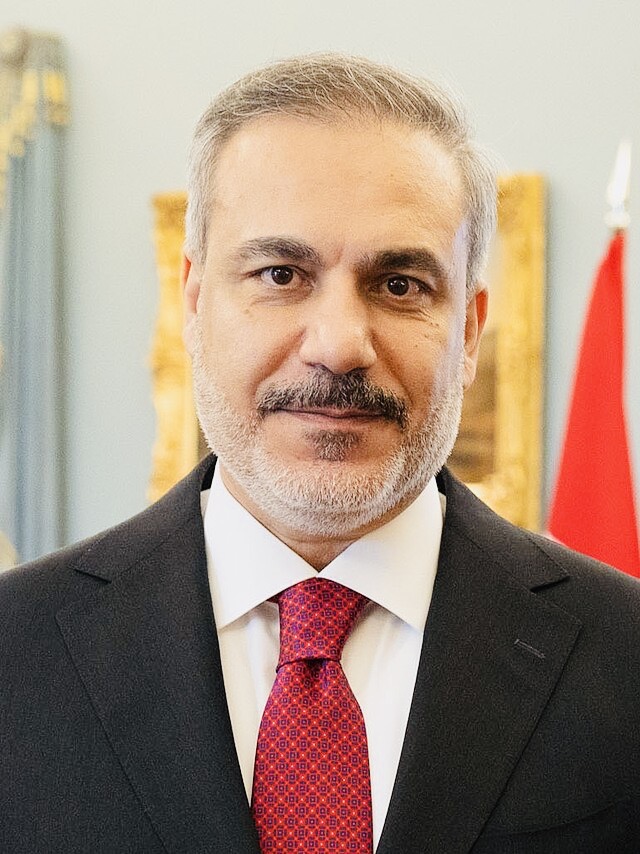
Fidan was receptive to talks after the Israeli Air Force struck three air bases in Syria earlier this month that Turkey hopes to convert into Turkish ones.
Israel and Turkey, which are regional rivals, have been enmeshed in a bitter war of words over Syria, a key Arab state and one of Israel’s most implacable enemies.
Since the sudden downfall of Syrian President Bashar al-Assad’s autocratic regime last December, they have been busy pursuing their respective ambitions in Syria, which is currently administered by an interim government backed by Turkey but scorned by Israel.
Israel has denounced the new Syrian president, Ahmed al-Shara, as a closet jihadist, seized territory and created a self-declared buffer zone in southern Syria, and bombed caches of weapons and munitions left behind by the Assad dynasty to ensure they do not fall into enemy hands.
Turkey assisted Shara in mounting last year’s rebellion and takeover. Since then, Turkey has played a behind-the-scenes role in elevating him into Syria’s preeminent politician.
Turkey’s strategic objectives are clear.
Turkish President Recep Tayyip Erdogan wants to deepen Turkey’s influence in Syria, stabilize Syria so that Syrian refugees in Turkey can return to their homes, consolidate its existing security zone in northern Syria, and purge its southern border area of Kurds seeking autonomy or statehood within Turkish territory.
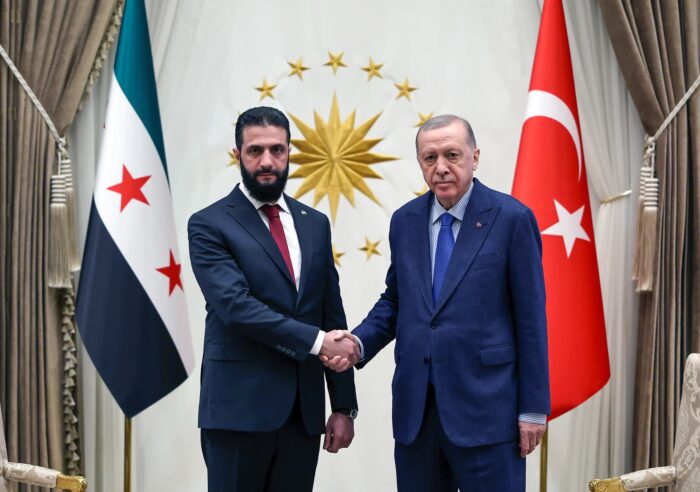
Turkey’s quest to build military bases in Syria is what primarily alarms Israel, which had normal relations with Turkey until the outbreak of the latest war in the Gaza Strip in 2023. Since the Israel-Hamas war, Turkey, in support of the Palestinians, has regularly denounced Israel and downgraded its relations with it.
In a tangible expression of its concern over Turkey’s moves in Syria, Israel, on April 5, bombed and damaged three airfields in central Syria, T-4, Palmyra and Homs. Turkey intends to use them under a proposed defence agreement with the Syrian government.
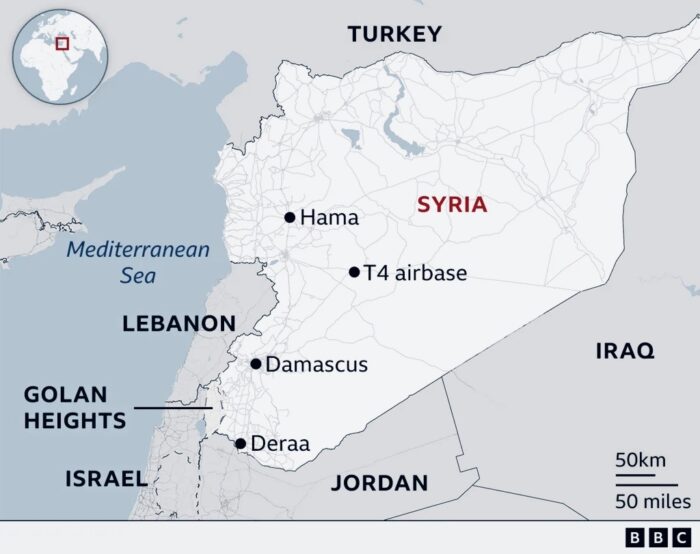
Israel was concerned that these bases would enable Turkey — the sole Muslim member of the NATO alliance — to establish air superiority and thereby undermine its operational freedom in Syria. As Ron Ben-Yishai, a seasoned Israeli reporter, wrote in Ynet News, “Turkey’s intention to introduce air defence systems and radar to central Syrian airports poses a direct threat to Israel’s freedom of action in Syria.”
Israeli Defence Minister Israel Katz described Israel’s air strikes as a warning, saying he would not allow its security “to be harmed.”
Turkey reacted swiftly, with Fidan lambasting Israel as “the greatest threat to regional security.” Subsequently, he added that Turkey desires no confrontation with Israel because Syria “belongs to the Syrians.”
Erdogan stepped into the fray as well, implicitly warning Israel to stay out of Syria. As he put it earlier this month, “Those seeking to benefit from Syria’s instability will not succeed. We will not allow them to divide Syria as they imagine.”
An unidentified Israeli official said that, while Israel does not seek conflict with Turkey, Israel opposes a Turkish military presence in Syria.
Israeli Foreign Minister Gideon Saar conveyed this point bluntly, accusing Turkey of being a “negative” influence and claiming that its goal is to create a protectorate in Syria.
During his recent trip to Washington, Netanyahu expressed concerns over Turkish influence in Syria. “We’ve had neighborly relations with Turkey that have deteriorated, and we don’t want to see Syria being used by anyone, including Turkey, as a base for attack in Israel,” he said. “We discussed how we can avoid this conflict in a variety of ways, and I think we can’t have a better interlocutor than the president of the United States for this purpose.”
Several days ago, U.S. President Donald Trump said he would be willing to be a mediator in Israel’s conflict with Turkey, but urged Israel to be “reasonable.”
According to the Reuters news agency, Israel hopes that Russia will continue to operate its bases in Syria, which were established during the Assad era. Israel apparently has been lobbying the United States to endorse its position on this issue.
Turkey, for the past few months, has been trying to nail down a defence agreement that would permit Turkish personnel to use Syrian airbases. The Turks believe that such an arrangement would be doubly beneficial. It would let Turkey fill the vacuum left by Iran and Russia, both of which supported the deposed Assad regime. And it would help stabilize Syria, enabling Turkey to continue operations against the Islamic State organization, which of late has been regaining strength in Syrian territory.
The current Syrian government, the weakest in Syria’s history, has had little to say about Israel’s rivalry with Turkey, but the Syrians have blasted Israel’s encroachments on Syrian soil.
Last week, the Foreign Ministry in Damascus issued a sharp statement condemning Israeli air strikes, claiming they are part of “an Israeli campaign against the Syrian people and the stability of the country. These deliberate attacks, launched without reason, reveal Israel’s total disregard for international law and norms and represent a direct threat to regional and international security.”
Shara has repeatedly said that Syria poses no threat to any of its neighbors and does not seek a confrontation with Israel. He told the Economist last month that Syria desires peace with all its neighbors, but that it is too early to discuss this issue now. His top priority is to unite Syria, which is bitterly divided, and to cement his power and control.
To no one’s surprise, Arab states have denounced Israel’s unilateral actions in Syria as well.
Jordan has called Israeli attacks “a flagrant violation of international law, a blatant violation of Syria’s sovereignty and unity, and a dangerous escalation in the region.”
Egypt, having accusing Israel of “irresponsible policies” and of igniting “tension in the region,” has urged Israel to “end its occupation of Syrian lands and abide by international law.”
Qatar has denounced Israeli air strikes as “a blatant violation of Syria’s sovereignty, unity, and international law.”
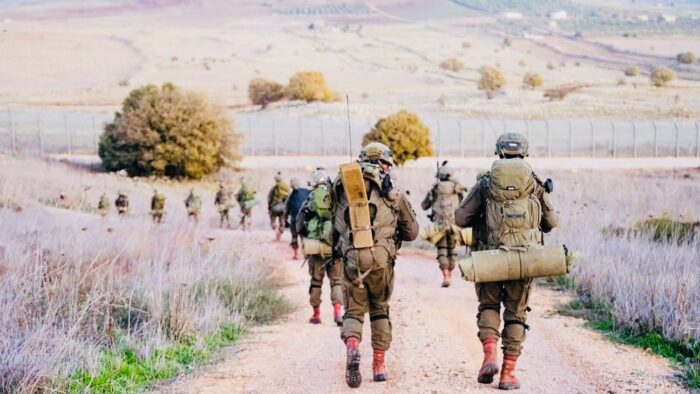
Israel has launched regular incursions into southwestern Syria to ensure that the area, which is close to the Golan Heights, is free of hostile forces such as Islamic State or Assad loyalists. Recently, Israeli troops penetrated the city of Deraa, killing nine civilians.
Late last month, an additional four Syrians were killed during the course of Israeli shelling near the village of Koya after local gunmen tried to stop an Israeli advance. Asa result, imams in Deraa and Damascus have reportedly called for jihad against the Israeli army.
Since the collapse of the Assad regime, Israel has not been subjected to a single attack from Syria, according to Charles Lister, the director of the Syria Program at the Middle East Institute in the United States. During this period, he notes, Israel has conducted more than 70 raids into Syria.
Judging by the current instability in Syria, Israel is likely to mount many more raids into Syria to protect its national security. Whether they will embroil Israel in a clash with Turkey remains to be seen.
